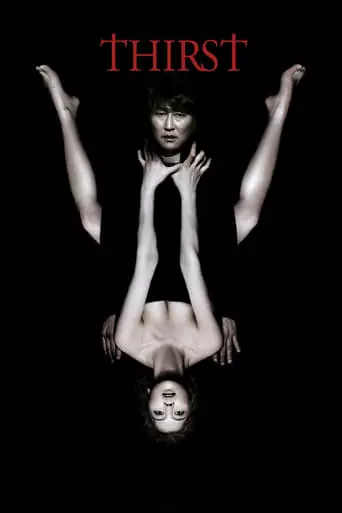
Bakjwi (2009) Watch Online Free
A respected priest volunteers for an experimental procedure that may lead to a cure for a deadly virus. He gets infected and dies, but a blood transfusion of unknown origin brings him back to life. Now, he’s torn between faith and bloodlust, and has a newfound desire for the wife of a childhood friend.
Thirst (originally Bakjwi) is a South Korean horror film directed by Park Chan-wook. The story follows Father Sang-hyun, a Catholic priest who volunteers for a medical experiment aimed at curing a virus ravaging populations in rich countries. However, the experiment goes wrong, and Sang-hyun contracts the virus, which leads to his death. Miraculously, he is resurrected as a vampire, and the film explores his moral and existential struggles as he grapples with his new identity.
As Sang-hyun adjusts to his vampire nature, he begins to experience the overwhelming lust for blood that comes with it. His life takes a darker turn when he meets Tae-ju, the wife of his childhood friend, Kang-woo, who is bedridden due to illness. Tae-ju is trapped in a loveless marriage and is initially cold toward Sang-hyun, but their relationship grows complicated as they both become entangled in a forbidden love affair. The film explores themes of sin, guilt, and self-destruction, as Sang-hyun finds himself torn between his newfound desires and his former life as a priest.
The narrative delves into the consequences of their affair, which leads to a series of tragic events. The movie culminates in a shocking and symbolic ending, where Sang-hyun and Tae-ju’s fate is sealed in a fiery conclusion.
Thirst blends horror with themes of passion, guilt, and redemption. The film explores the internal conflict of a man of faith who is turned into a vampire, forcing him to confront his desires and his faith. The presence of Catholicism in the film adds a layer of moral complexity, as Sang-hyun’s transformation challenges his beliefs about sin and salvation. His struggle with his new identity as a vampire is juxtaposed with his attempts to maintain his religious integrity, making Thirst a deep exploration of the human condition.
The film also addresses the theme of forbidden love. Tae-ju, dissatisfied with her life and marriage, becomes an active participant in the affair with Sang-hyun, subverting the traditional vampire trope where the vampire seduces the helpless victim. This reversal of roles adds an intriguing dynamic to their relationship, which grows increasingly dangerous and destructive.
Another prominent theme is the loss of humanity. As Sang-hyun becomes more immersed in his vampire nature, he loses his connection to his former self, and his moral compass is compromised. This loss is mirrored by the violence and depravity that unfolds, emphasizing the corrupting power of desire.
Thirst had a significant impact on both horror and international cinema. It showcased Park Chan-wook’s ability to blend stylish visuals with disturbing content, much like his previous films, particularly the Vengeance Trilogy. The film’s unique take on the vampire genre—combining elements of gothic horror with a deeper exploration of human emotions—set it apart from typical vampire films. It also garnered critical acclaim for its bold themes and disturbing imagery, making it a standout in the horror genre.
The film’s exploration of religious themes, such as the conflict between faith and temptation, was particularly notable. It sparked discussions about the moral complexities of human desires and the consequences of living a life filled with guilt and self-doubt. The movie’s success at the Cannes Film Festival, where it won the Jury Prize, further cemented its place in the international spotlight.
After watching Thirst, you may feel a mix of discomfort and fascination. The film’s intense exploration of desire, guilt, and the loss of humanity is likely to leave you thinking long after the credits roll. Its dark, atmospheric tone and shocking imagery can be unsettling, but they also provoke deep reflection on the nature of sin and redemption.
You may also feel conflicted, as the characters’ actions and motivations are morally ambiguous. Sang-hyun’s internal struggle between his faith and his desires is portrayed in a way that makes it difficult to completely condemn or sympathize with him. Similarly, Tae-ju’s role in the affair complicates the traditional victim-perpetrator dynamic, leaving viewers to grapple with their feelings toward her.
Ultimately, Thirst is a film that challenges its audience to confront uncomfortable truths about human nature, making it a thought-provoking experience that lingers long after viewing
